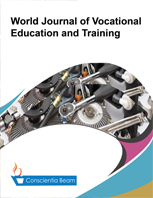Human Resource Development Practices at the Crossroads: A Performance Review of Higher Educational Academics in East African Universities
DOI:
https://doi.org/10.18488/journal.119.2020.22.132.145Abstract
Right at the outset, this paper provides the reader with precise and valuable evidence alluding to the failure of the Human Resource (HR) functions in shaping work performance of academics in Higher Education (HE) context. While it is a truism that the eminence of a university cannot outmatch that of its academic staff and that the survival of any institution lies in its ability to nurture, coach, and retain its workforce, on the contrary, practice seems to suggest otherwise. Troubled by this uncertainty, the researchers were compelled to investigate why despite huge investment in HR functions; academic staff performance is still unconvincing. Why career development and training plans that are set out to retool academic staff are regarded as simplistic, unfocused, and pointless. Why HR officers in academic institutions across the region seem uncoordinated and less bothered. The available body of literature accompanied by a staked pile of statistics do not tone down to these questions, in fact, it is appropriate to claim that, HRD is one of the areas that are widely studied and least understood at the same time. These among other gaps both in theory and practice gave birth to this study. Findings of this study revealed that whereas HRD practices have a positive impact on work performance of academic staff, practice seems to distance itself from this reality. Key informants consistently maintained that while it is true that employee training, and career development significantly predict work performance, in real sense, most HR officers seem unaware of this reality.

